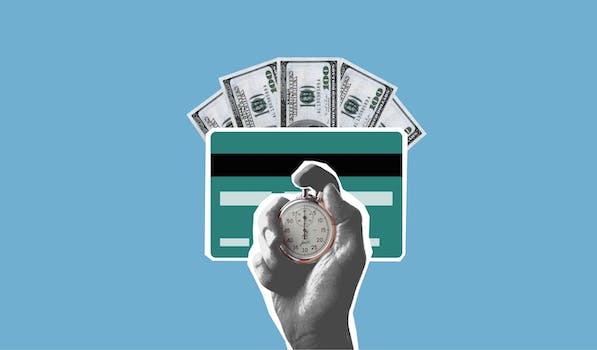How To Save Money Tips
“Maximize your savings with these expert tips.”
Introduction
Introduction: Saving money is an essential aspect of financial planning. It helps you to achieve your financial goals, build an emergency fund, and secure your future. However, saving money can be challenging, especially if you don’t have a plan or strategy. In this article, we will provide you with some practical tips on how to save money effectively. These tips will help you to cut down your expenses, increase your savings, and achieve your financial goals.
10 Simple Ways to Cut Your Monthly Expenses
Saving money is a goal that many people have, but it can be difficult to know where to start. Fortunately, there are many simple ways to cut your monthly expenses and start saving money today. Here are 10 tips to help you get started.
1. Create a budget
The first step to saving money is to create a budget. This will help you see where your money is going and identify areas where you can cut back. Start by listing all of your monthly expenses, including rent or mortgage payments, utilities, groceries, and entertainment. Then, compare your expenses to your income and see where you can make adjustments.
2. Cut back on eating out
Eating out can be a major expense, especially if you do it frequently. Try to limit your restaurant visits and cook at home more often. Not only will this save you money, but it can also be healthier and more enjoyable.
3. Use coupons and discounts
Coupons and discounts can help you save money on everything from groceries to clothing. Look for coupons online or in your local newspaper, and take advantage of sales and discounts whenever possible.
4. Cancel unnecessary subscriptions
Do you have subscriptions to magazines, streaming services, or other services that you don’t use? Cancel them and save yourself some money each month.
5. Use public transportation
If you live in an area with good public transportation, consider using it instead of driving. This can save you money on gas, parking, and car maintenance.
6. Shop around for insurance
Insurance can be a major expense, but you may be able to save money by shopping around. Compare rates from different providers and see if you can get a better deal.
7. Cut back on energy usage
Reducing your energy usage can help you save money on your monthly utility bills. Turn off lights and electronics when you’re not using them, and consider using energy-efficient appliances and light bulbs.
8. Buy generic products
Generic products can be just as good as name-brand products, but they’re often much cheaper. Look for generic versions of your favorite products and save money without sacrificing quality.
9. Use cash instead of credit cards
Using cash instead of credit cards can help you avoid overspending and keep your budget in check. Try to use cash for everyday purchases and save your credit cards for emergencies.
10. Negotiate bills
If you’re struggling to pay your bills, don’t be afraid to negotiate with your providers. You may be able to get a lower rate or a payment plan that works better for your budget.
Saving money doesn’t have to be difficult. By following these simple tips, you can cut your monthly expenses and start building your savings today. Remember to be patient and persistent, and don’t be afraid to ask for help if you need it. With a little effort, you can achieve your financial goals and enjoy a more secure future.
The Ultimate Guide to Couponing for Beginners

Are you tired of spending too much money on groceries and household items? Do you want to learn how to save money without sacrificing quality? Couponing may be the solution you’ve been looking for. In this ultimate guide to couponing for beginners, we’ll cover everything you need to know to start saving money today.
First, let’s talk about where to find coupons. The most common sources are newspapers, magazines, and online coupon websites. You can also find coupons on product packaging, in-store displays, and through loyalty programs. It’s important to check expiration dates and any restrictions before using a coupon.
Next, it’s important to have a system for organizing your coupons. Some people prefer to use a binder with clear plastic sleeves, while others use a coupon wallet or envelope system. Whatever method you choose, make sure it’s easy to access and use while shopping.
When it comes to using coupons, timing is key. Look for sales and promotions that can be combined with your coupons for maximum savings. Many stores also offer double or triple coupon days, which can be a great opportunity to stock up on items you use regularly.
Another way to save money is by using cashback apps and websites. These programs offer rebates on purchases made at participating stores. Simply scan your receipt or link your loyalty card to earn cashback on eligible items.
It’s also important to be mindful of your shopping habits. Avoid impulse purchases and stick to your shopping list. Consider buying in bulk for items you use frequently, but make sure you have enough storage space and that the items won’t expire before you can use them.
Finally, don’t be afraid to ask for discounts or negotiate prices. Many stores offer price matching and will honor competitor coupons. If an item is damaged or nearing its expiration date, ask for a discount. You may be surprised at how much you can save by simply asking.
In conclusion, couponing can be a great way to save money on groceries and household items. By finding coupons, organizing them, and using them strategically, you can maximize your savings. Additionally, using cashback apps and websites, being mindful of your shopping habits, and negotiating prices can help you save even more. With these tips, you’ll be on your way to becoming a savvy shopper in no time.
5 DIY Home Improvement Projects That Will Save You Money
Are you looking for ways to save money on home improvement projects? Look no further! Here are five DIY home improvement projects that will not only save you money but also add value to your home.
1. Paint Your Walls
One of the easiest and most cost-effective ways to update your home is by painting your walls. A fresh coat of paint can transform a room and make it look brand new. Plus, you can save money by doing it yourself instead of hiring a professional painter. All you need is some paint, brushes, and rollers, and you’re ready to go. Just make sure to properly prep your walls before painting to ensure a smooth finish.
2. Install a Programmable Thermostat
Installing a programmable thermostat is a great way to save money on your energy bills. With a programmable thermostat, you can set the temperature to automatically adjust when you’re not home or when you’re sleeping. This means you won’t be wasting energy heating or cooling an empty house. Plus, you can easily install a programmable thermostat yourself with just a few basic tools.
3. Update Your Lighting
Updating your lighting can make a big difference in the look and feel of your home. You can replace outdated light fixtures with modern ones or install dimmer switches to create a more relaxing atmosphere. LED bulbs are also a great option as they use less energy and last longer than traditional bulbs. And, like the other projects on this list, you can easily do it yourself to save money.
4. Refinish Your Cabinets
If your kitchen cabinets are looking a little worn, you don’t have to replace them. Refinishing your cabinets can give them a fresh new look without the cost of buying new ones. You can sand and paint them yourself or hire a professional to do it for you. Either way, it’s a much cheaper option than buying new cabinets.
5. Add Insulation
Adding insulation to your home is a great way to save money on your energy bills. Insulation helps keep your home warm in the winter and cool in the summer, which means you won’t have to rely on your heating and cooling systems as much. You can add insulation to your attic, walls, and floors yourself with just a few basic tools. And, in addition to saving money, adding insulation can also increase the value of your home.
In conclusion, there are many DIY home improvement projects that can save you money and add value to your home. From painting your walls to adding insulation, these projects are easy to do yourself and can make a big difference in the look and feel of your home. So, why not give them a try and see how much money you can save?
How to Meal Plan and Save Money on Groceries
Are you tired of overspending on groceries every month? Do you want to learn how to meal plan and save money on your grocery bill? Look no further! In this article, we will provide you with some helpful tips on how to save money on groceries by meal planning.
Firstly, it is important to plan your meals for the week ahead. This will help you to avoid impulse buying and ensure that you only purchase what you need. Take some time to sit down and plan out your meals for the week. Consider what ingredients you already have in your pantry and fridge, and what meals you can make with them. This will help you to avoid buying unnecessary items and save money in the long run.
Next, make a list of the ingredients you need for each meal. This will help you to stay organized and ensure that you don’t forget anything. When making your list, be sure to include any snacks or other items you may need throughout the week. Stick to your list when you go grocery shopping and avoid buying anything that is not on it.
Another great way to save money on groceries is to buy in bulk. This is especially useful for items that you use frequently, such as rice, pasta, and canned goods. Buying in bulk can save you money in the long run, as you will not have to purchase these items as frequently. However, be sure to only buy what you need and avoid buying items that will go to waste.
When shopping for groceries, it is also important to compare prices. Take some time to compare prices at different stores and look for sales and discounts. Many stores offer weekly specials and coupons that can help you save money on your grocery bill. Be sure to take advantage of these deals and stock up on items when they are on sale.
Another great way to save money on groceries is to buy generic or store-brand items. These items are often just as good as name-brand products, but are much cheaper. Look for generic or store-brand versions of your favorite products and give them a try. You may be surprised at how much money you can save.
Finally, consider meal prepping as a way to save money on groceries. Meal prepping involves preparing meals in advance and storing them in the fridge or freezer for later use. This can help you to avoid eating out or ordering takeout, which can be expensive. Take some time on the weekend to prepare meals for the week ahead and store them in individual containers. This will make it easy to grab a meal on the go and save you time and money in the long run.
In conclusion, meal planning is a great way to save money on groceries. By planning your meals in advance, making a list, buying in bulk, comparing prices, buying generic or store-brand items, and meal prepping, you can save money on your grocery bill and avoid overspending. Give these tips a try and see how much money you can save!
The Benefits of Investing in Energy-Efficient Appliances
Saving money is a goal that many people strive for, but it can be difficult to know where to start. One area where you can make a significant impact on your budget is by investing in energy-efficient appliances. Not only will you save money on your monthly utility bills, but you’ll also be doing your part to help the environment. Here are some benefits of investing in energy-efficient appliances.
Lower Energy Bills
One of the most significant benefits of investing in energy-efficient appliances is the savings you’ll see on your monthly energy bills. Energy-efficient appliances use less energy than their traditional counterparts, which means you’ll be using less electricity or gas to power them. This can add up to significant savings over time, especially if you have multiple appliances in your home.
For example, an energy-efficient refrigerator can save you up to $300 over its lifetime compared to a traditional model. Similarly, an energy-efficient washing machine can save you up to $370 over its lifetime. These savings can really add up over time, making it well worth the investment in energy-efficient appliances.
Long-Term Savings
While energy-efficient appliances may cost more upfront, they can actually save you money in the long run. Because they use less energy, they tend to last longer than traditional appliances. This means you’ll save money on repairs and replacements over time.
Additionally, many energy-efficient appliances come with warranties that can help protect your investment. This means you’ll have peace of mind knowing that your appliance is covered if anything goes wrong.
Environmental Benefits
Investing in energy-efficient appliances isn’t just good for your wallet – it’s also good for the environment. Traditional appliances use more energy, which means they contribute to higher greenhouse gas emissions. By investing in energy-efficient appliances, you’ll be doing your part to reduce your carbon footprint and help protect the environment.
Additionally, many energy-efficient appliances are made with eco-friendly materials and are designed to be more sustainable. This means you’ll be supporting companies that are committed to reducing their impact on the environment.
Increased Home Value
Investing in energy-efficient appliances can also increase the value of your home. Many homebuyers are looking for homes that are energy-efficient, as they know they’ll save money on their monthly utility bills. By investing in energy-efficient appliances, you’ll be making your home more attractive to potential buyers.
Additionally, many states and local governments offer incentives for homeowners who invest in energy-efficient appliances. These incentives can include tax credits, rebates, and other financial incentives that can help offset the cost of your investment.
Final Thoughts
Investing in energy-efficient appliances is a smart choice for anyone looking to save money and help the environment. Not only will you see savings on your monthly energy bills, but you’ll also be doing your part to reduce your carbon footprint. Additionally, energy-efficient appliances can last longer than traditional appliances, which means you’ll save money on repairs and replacements over time. So if you’re looking for a way to save money and make a positive impact on the environment, consider investing in energy-efficient appliances.
Conclusion
Conclusion: Saving money is an important aspect of financial planning. By following simple tips such as creating a budget, reducing unnecessary expenses, and investing wisely, individuals can save money and achieve their financial goals. It is important to be disciplined and consistent in implementing these tips to see significant results. With a little effort and determination, anyone can save money and secure their financial future.







